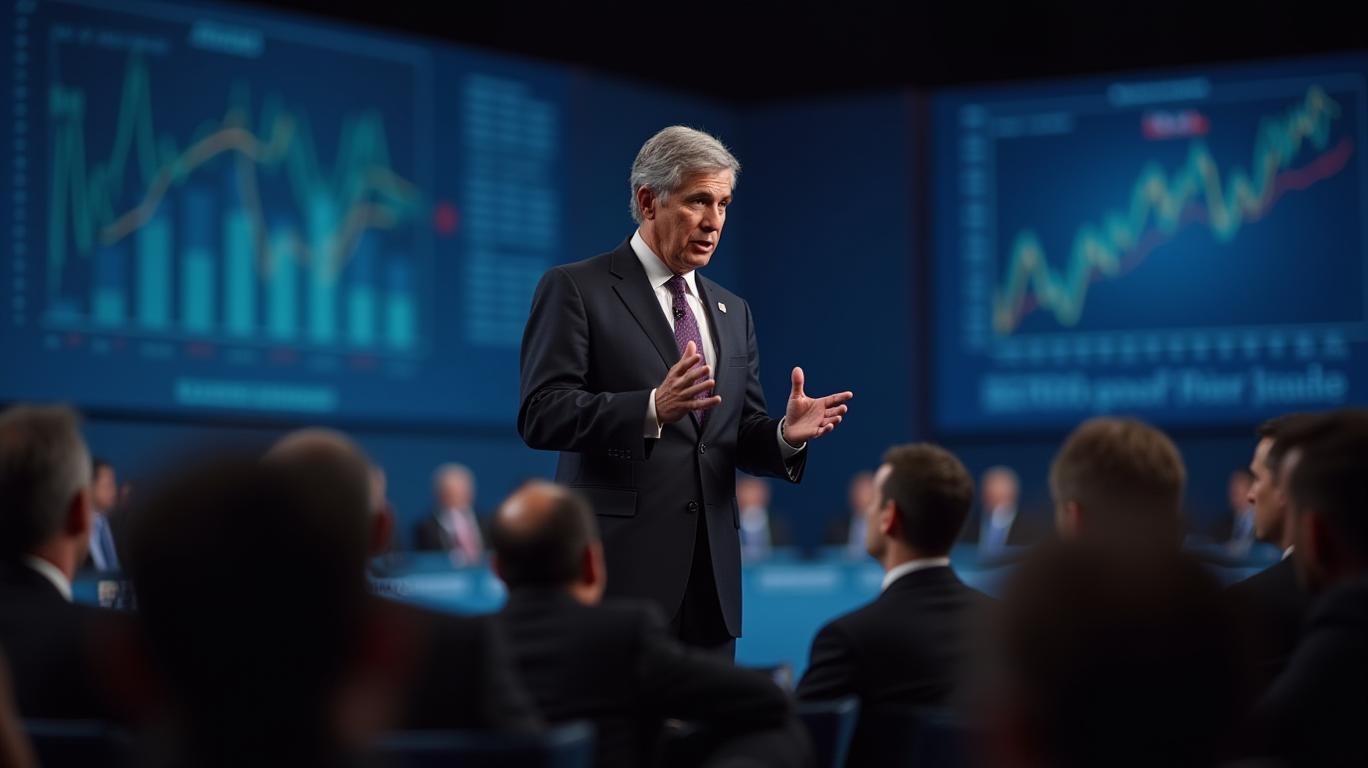Kevin Warsh Accuses Fed of Systemic Errors, Inflation Failure
Kevin Warsh, a prominent figure and potential successor to the Federal Reserve Chair, recently delivered a scathing critique of the Federal Reserve, accusing it of committing "systemic errors" that have failed to curb the most severe inflation surge in a generation. Warsh, a former Federal Reserve governor and a close ally of Donald Trump, is often referred to as the "shadow chairman" of the Federal Reserve, making his remarks particularly noteworthy.
Warsh argued that since the 2008 financial crisis, central banks have assumed a dominant role in governance, transforming the Federal Reserve into a general government agency rather than a central bank focused on monetary policy. This shift, he contended, has hindered the Fed's ability to keep inflation within its 2% target range. He specifically blamed the Fed's $7 trillion balance sheet for enabling excessive government spending, pushing the U.S. fiscal situation onto a "dangerous trajectory."
Warsh criticized the Fed's large-scale purchases of government bonds under quantitative easing, stating that these actions made it easier for Congress to allocate funds, knowing that the central bank would subsidize the government's financing costs. He also took issue with the Fed's involvement in areas beyond its core mandate, such as climate change and social inclusion, despite the Fed's recent withdrawal from the "Network for Greening the Financial System."
Warsh's comments come at a time of heightened tension between the Federal Reserve and the Trump administration. Last week, Trump expressed his eagerness to end Fed Chair Jerome Powell's term, although he later walked back his remarks, easing global market concerns. Powell's term is set to expire in May 2026, and Treasury Secretary Steven Mnuchin has indicated that the selection process for his successor will begin this fall. Warsh and Kevin Hassett, the head of the National Economic Council, are considered the front-runners for the position.
Despite his harsh criticism of the Fed's policies, Warsh emphasized his support for the Fed's operational independence in setting interest rates, free from political interference. However, he stressed that the Fed should be held accountable for poor monetary policy outcomes and should not be seen as an untouchable authority.
Warsh's remarks underscore the ongoing debate about the Fed's role and independence, particularly in the context of rising inflation and political pressures. His critique highlights the challenges faced by central banks in balancing their mandate to maintain price stability with the need to support economic growth and financial stability.

Stay ahead with real-time Wall Street scoops.
Latest Articles
Stay ahead of the market.
Get curated U.S. market news, insights and key dates delivered to your inbox.



Comments
No comments yet